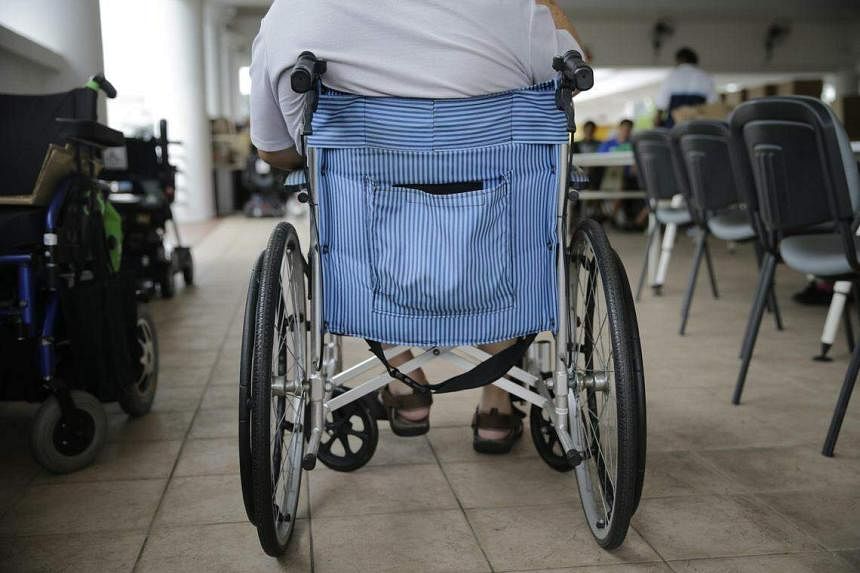Two words – “closer” and “coordinated” – can be used to sum up the announcements during the debate on the Ministry of Social and Family Development’s budget on Friday.
Closer, because persons with disabilities (PwDs) can soon access social activities, enrichment courses and employment nearer their homes and in the HDB heartland.
The Enabling Services Hub will be located in Tampines West Community Centre, while the Enabling Business Hub (EBH) will be launched in Jurong West.
Coordinated, because the ESH will work with SG Enable and special education schools to reach out to graduating cohorts who may otherwise fall through the cracks.
The basic principles of Singapore’s social safety net, set out clearly in a Committee of Supply speech in 2005, haven’t changed all that much: self-reliance, family as the first line of support, and many helping hands.
But under the “many helping hands” approach, service delivery could be fragmented. Singaporeans who needed help found themselves repeating their case history to different agencies, and filling up multiple forms.
This led to a “bandwidth tax” on mental resources, which Senior Parliamentary Secretary for Social and Family Development Eric Chua alluded to in his speech.
The announcements on March 3 build on reforms that have been carried out since, in particular, localised networks set up across Singapore to coordinate support and tackle the multifaceted issues families face.
This wraparound help is now fully manifested in the nationwide expansion of ComLink, with common functions such as outreach, befriending, and case support streamlined across various programmes.
Since November 2022, all families with children who moved into rental flats have also been automatically offered ComLink support under the ComLink Rental Scheme.
Can those who have graduated from ComLink – and who may be able to build rapport with these families – be enlisted to work with them, as Ms Carrie Tan (Nee Soon GRC) suggested?
End-to-end help is also seen in the nationwide expansion of KidStart by 2026.
Instead of leaving it to lower-income families to take action – as they may not be aware or have the mental bandwidth – KK Women’s and Children’s Hospital (KKH) and the National University Hospital (NUH) will identify and encourage eligible mothers to sign up to KidStart when they are still pregnant.
Minister for Social and Family Development Masagos Zulkifli and Minister of State Sun Xueling mentioned how a local study, Gusto, had found links between mothers’ well-being during pregnancy and their children’s later development.
This had informed the Government’s approach to support KidStart families as early as possible, even before their children are born.
“By intervening early to improve subsequent education and life outcomes, we hope to sustain social mobility across generations,” said Ms Sun.
Here, MSF’s plans for more academic collaborations is important. One hopes it will build a larger body of longitudinal studies on intergenerational mobility, as well as applied research.
Another notable move is priority enrolment for children from lower-income families at anchor operator pre-schools.
Today, even though there are already outreach workers to help these families enrol in pre-school, the onus of taking the first step is still very much on the parents.
The difference now is that pre-schools can, using an enhanced search portal, actively identify eligible children and prioritise them for enrolment.
Nevertheless, some gaps remain.
To date, less than one-third of resident PwDs aged 15 to 64 participate in the labour force.
Although the authorities have become better at tracking the “flow” of PwDs through the system and helping them find jobs – especially recent graduates from mainstream and Sped institutions – it’s difficult to have full visibility over the “stock” of PwDs.
This is especially true for those who do not declare themselves as having disabilities, or who stay at home and have not worked for a long time.
It can also be hard to achieve a “finer resolution” of support options for different groups with varying levels of disability, as Ms Rahayu Mahzam (Jurong GRC) mentioned.
Some employers hesitate to hire PWDs, thinking that supporting such employees is too costly or takes too much effort.
This is a pity, because there are schemes available such as the Open Door Programme which provides grants and employment services.
The wage offset component of the Enabling Employment Credit has also just been bumped up, with the duration of support increased from six to nine months.
But even if PwDs are hired, they tend to take up back-of-house positions in sectors such as food services and retail, with few assuming leadership or management roles.
It remains to be seen if the range and level of positions they take up under these schemes can expand over time.
Be it PwDs or lower-income households, the hope for all families, as Mr Masagos said, is stability, self-reliance and social mobility. This is Singapore’s unique approach not just to address inequality, but also to forge social cohesion.


